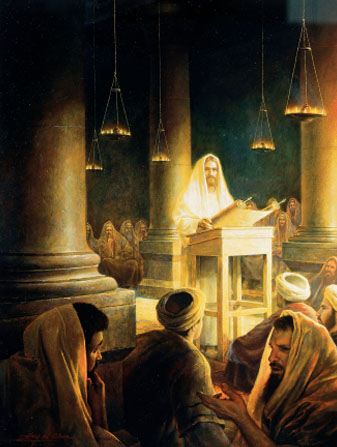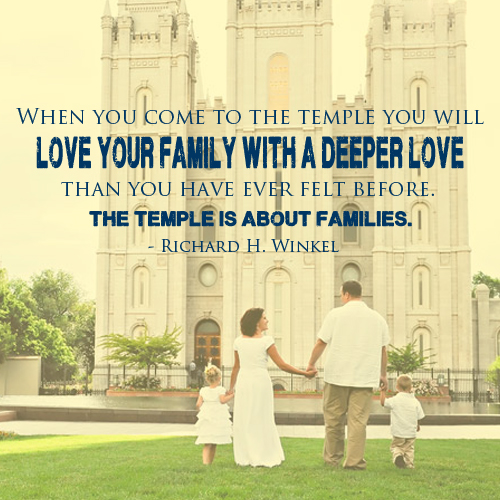
by Lisa M. | Dec 6, 2013 | About Mormons
The true measure of literary greatness depends on, well, how you measure it. Is great literature defined by critics, readers or awards? Longevity through generations? Literature that inspires change—political, cultural or religious? What yardstick is used, so to speak, in making a judgment? A recent New York Times column stated that in 1888, Orson Whitney—a leader in The Church of Jesus Christ of Latter-day Saints, sometimes inadvertently called the Mormon Church—spoke of the possibility of Mormon literature, saying, “We will yet have Miltons and Shakespeares of our own.” The column stated that, 125 years later, this has not happened. [1] The columnist is both right and wrong. By the world’s standards, Latter-day Saints might not have their own literary giants. But Bishop Whitney never intended Latter-day Saints to be literary giants according to the world’s standards—he intended them to be literary giants according to the Lord’s standards. He said:
It is by means of literature that much of this great work will have to be accomplished: a literature of power and purity, worthy of such a work. And a pure and powerful literature can only proceed from a pure and powerful people…. Experience has taught me that it is the heart, not simply the head, we must appeal to, if we wish to stir the soul. The intellect may shine, but it is the bosom that burns, and warms into life every movement that is born to bless humanity. …
We will yet have Miltons and Shakespeares of our own. God’s ammunition is not exhausted. His brightest spirits are held in reserve for the latter times. In God’s name and by his help we will build up a literature whose top shall touch heaven, though its foundations may now be low in earth. [2] (more…)

by gloria | Nov 26, 2013 | About Mormons
One of the wonderful benefits of being part of a ward (congregation) in The Church of Jesus Christ of Latter-day Saints (“Mormon Church”) is that you have “family” even when your real family may be far away. Such was the case when I became a widow at the age of 27. My three children were 4 months, 2 years, and 4 years old.
 Not long after my husband’s death, I determined to move to another city. While kneeling in prayer one morning, I had the distinct impression—like a voice in my head—which simply said, “Stay here.” I was startled by that admonishment, because it was not a choice that I wanted to consider. But, oh how many times in the ensuing years I reaped the blessings of listening to that prompting to stay!
Not long after my husband’s death, I determined to move to another city. While kneeling in prayer one morning, I had the distinct impression—like a voice in my head—which simply said, “Stay here.” I was startled by that admonishment, because it was not a choice that I wanted to consider. But, oh how many times in the ensuing years I reaped the blessings of listening to that prompting to stay!
My foremost desire for my children, as well as for myself, was to be involved with other families in the ward. We were a family unit and felt very much a part of the ward family as we attended all calendared events. At the time I had no desire to find my own fulfillment in activities for singles. I was puzzled at the attitude of a widow a bit older than I who one day said to me, “I’ve never been invited to any event.” I could have replied, “Nor have I. I just went.” It is a credit to my ward that I never perceived myself as an outsider. (more…)

by Charlotte Wilson | Aug 31, 2013 | About Mormons
If you’re at all familiar with The Church of Jesus Christ of Latter-day Saints (often inadvertently referred to as the Mormon church), you’ll know that the church has a bit of culture to it. Mormons have distinct cultural traditions and stereotypes. Tamu Smith and Zandra Vranes are two women who both embrace their black heritage and tackle missionary work through their blog and podcast, “Sistas in Zion.” Sometimes the best way to understand Mormon culture is to laugh at it.[1]
Embracing Their Own Cultural Heritage
 While Tamu and Zandra didn’t meet and become friends until later in their lives, both women had to come to grips with the Caucasian population in Utah. When each of them moved to Utah, they expected to find instant connection with the other church members around them. What they didn’t expect was difficulty in connecting because of different cultural backgrounds.
While Tamu and Zandra didn’t meet and become friends until later in their lives, both women had to come to grips with the Caucasian population in Utah. When each of them moved to Utah, they expected to find instant connection with the other church members around them. What they didn’t expect was difficulty in connecting because of different cultural backgrounds.
The Church of Jesus Christ understood this difficulty that its black members were facing and set up the Genesis Group, an organization dedicated to serving the needs of black Mormon and other Mormon minorities. Both Tamu and Zandra found great strength and comfort in the Genesis Group. “It was a breath of fresh air,” Zandra expressed. “That’s where I met Tamu.” (more…)

by Charlotte Wilson | Aug 31, 2013 | About Mormons
Members of The Church of Jesus Christ of Latter-day Saints (a faith often inadvertently referred to as the Mormon church) are subject to many stereotypes. One of the biggest assumptions about Mormons is that they have large families. Many Mormon parents have seven, eight, even ten children, sometimes more. While having large families isn’t part of Mormon dogma, bearing and raising children is. In a statement issued by the late church president Gordon B. Hinckley in 1995, he states, “The family is central to to the Creator’s plan for the eternal destiny of His children. . . . God’s commandment for His children to multiply and replenish the earth remains in force” (“The Family: A Proclamation to the World”).
Apart from this dramatic statement, church leadership leaves family planning to the discretion of each individual family unit. The fact that Mormons are known for their families is significant: Mormons value children and investing in parenthood.[1]
Families Are Forever
 One of the key doctrines of The Church of Jesus Christ centers on the family. Mormons believe that sacred ordinances performed in the temple can ensure eternal families. Mormon men and women are encouraged to prepare themselves for the temple, which isn’t open to the general public as the chapel meetinghouses are. Temples are reserved for sacred ordinances that prepare us for the eternities. One of the most significant ceremonies performed in temples is the sealing ceremony. A sealing is the term Mormons use for a temple wedding. These ordinances are different from civil weddings because the officiants’ authority does not extend through just this life. Men and women sealed together are married for time and all eternity. No civil officiant has the power to extend a marriage beyond death. Eternal marriage is unique to The Church of Jesus Christ and essential for eternal families. (more…)
One of the key doctrines of The Church of Jesus Christ centers on the family. Mormons believe that sacred ordinances performed in the temple can ensure eternal families. Mormon men and women are encouraged to prepare themselves for the temple, which isn’t open to the general public as the chapel meetinghouses are. Temples are reserved for sacred ordinances that prepare us for the eternities. One of the most significant ceremonies performed in temples is the sealing ceremony. A sealing is the term Mormons use for a temple wedding. These ordinances are different from civil weddings because the officiants’ authority does not extend through just this life. Men and women sealed together are married for time and all eternity. No civil officiant has the power to extend a marriage beyond death. Eternal marriage is unique to The Church of Jesus Christ and essential for eternal families. (more…)

by Charlotte Wilson | Aug 27, 2013 | About Mormons
Languages like ancient Greek and Latin are dead, right? No one actually speaks them anymore. That may be true, but in the world of academia, the study of those languages is alive and well. Humanities students of Brigham Young University, an institution owned by The Church of Jesus Christ of Latter-day Saints (a faith often inadvertently referred to as the Mormon church), have taken the study of classic languages seriously and have made an impression in national competitions.[1]
BYU Students Rank Highly in Competition
 In the National College Greek Exam, six BYU students ranked in the top 20 of contestants. BYU has always brought impressive competitors, and this year those students raised the bar even further. The National College Greek Exam is a test of 40 questions that students have 50 minutes to answer. Questions cover Greek grammar and translation. Two BYU students tied for second place, and four others placed in the top 20. (more…)
In the National College Greek Exam, six BYU students ranked in the top 20 of contestants. BYU has always brought impressive competitors, and this year those students raised the bar even further. The National College Greek Exam is a test of 40 questions that students have 50 minutes to answer. Questions cover Greek grammar and translation. Two BYU students tied for second place, and four others placed in the top 20. (more…)






